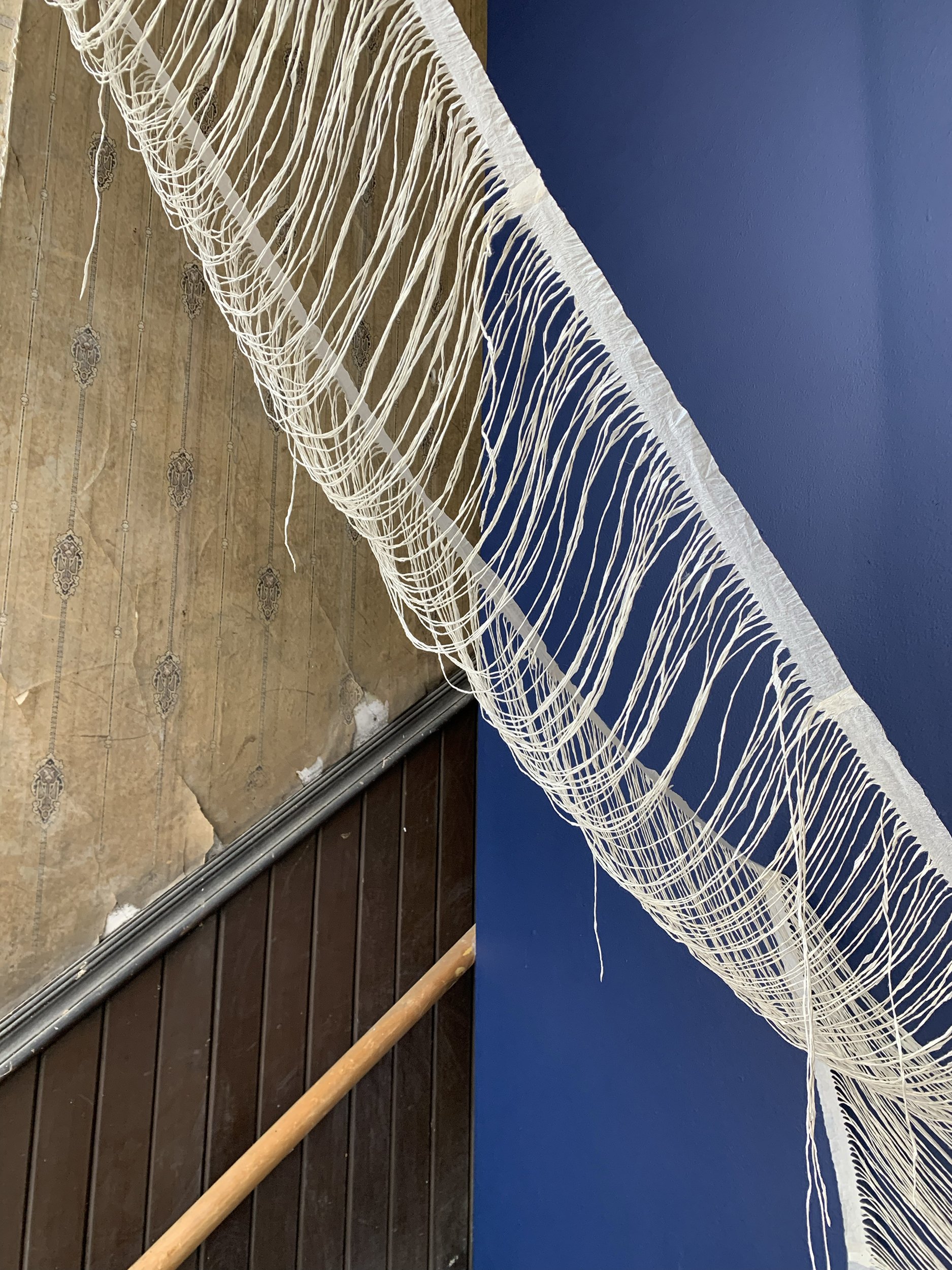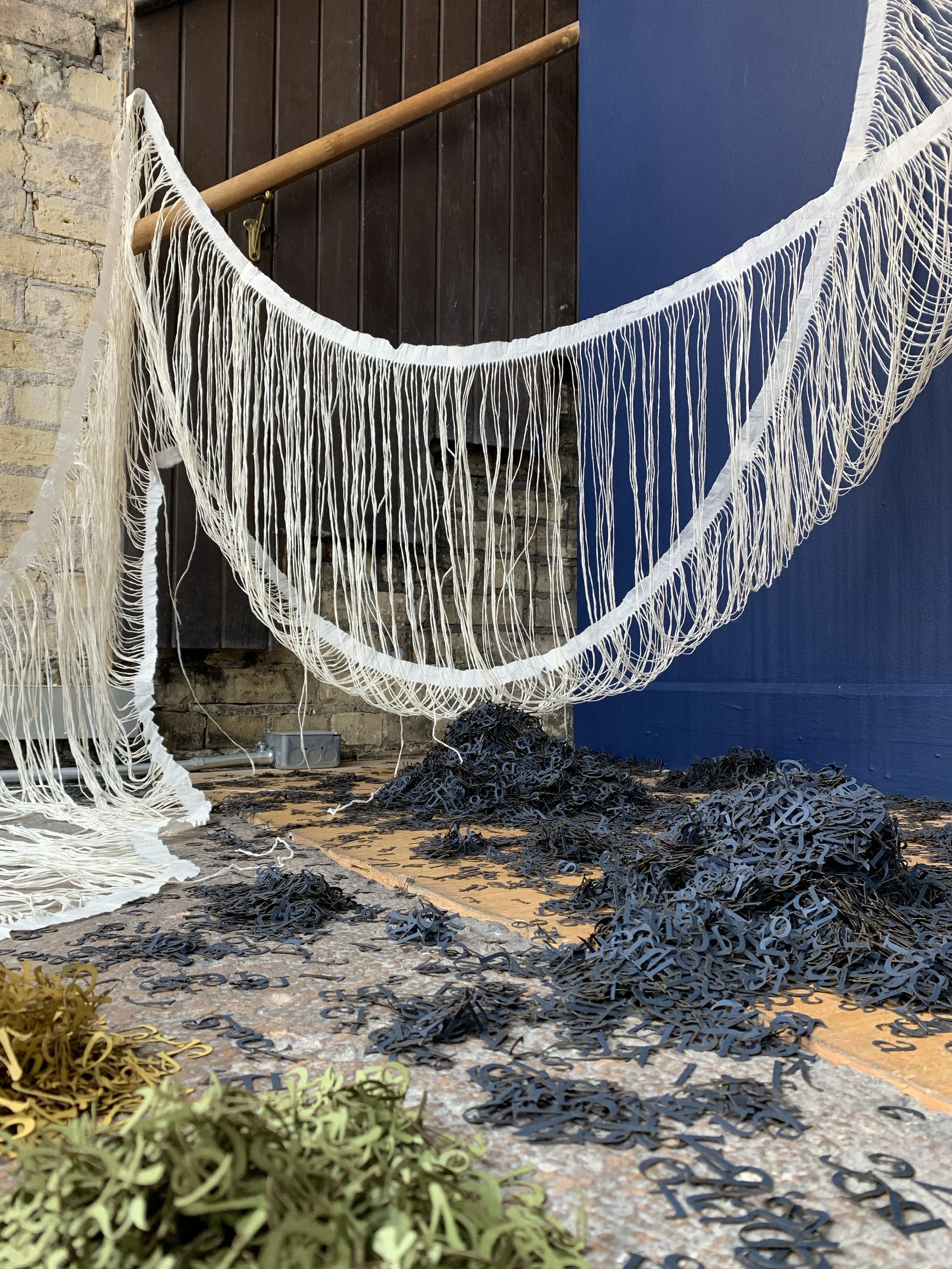Title: The Reality You Were Always a Part of Wasn’t the Reality You Knew
Media: Handmade washi, lasercut paper
Dimensions: 4.5’ x 14’ x 16.5’
Date: 2024
On View: Outlook Gallery, Minnesota Center for Book Arts
August 10–October 5, 2024
The Reality You Were Always a Part of Wasn’t the Reality You Knew explores transitional states and their relationship to failure and potential through the lens of sustained and broken connections to an ancestral homeland. This installation reflects my experience as a first generation Japanese-American seeking family history across the Pacific and confronting the silence of previous generations.
The column of handmade washi sheets are in transition from flat sheets of paper to kami-ito (paper thread). I made these twenty sheets of paper during a workshop at the Awagami Factory in Tokushima, Japan in 2004. Too precious for any project, I carried them across oceans and continents, increasing their value and burden.
The Awagami Factory is one town over from my maternal grandfather’s hometown. When I made this paper, I had no connection to any relatives in town, despite a strong desire for it. I had been told that we no longer knew any relatives in the country and that all connections were lost. All I was left with was a town name, copies of sparse documents and photos, and questions that ricocheted off an impenetrable silence developed over a half century of post-World War II xenophobia, immigration, and inter-class and interracial marriages.
In 2023, I traveled that one train station further and, within hours of arriving, found relatives who briskly welcomed me. We bonded over shared ancestors through a permeable language barrier. These cousins knew a surprising amount about me and what I had done during my life. Someone had told them about me, but nobody told me about them.
Subsequent inquiries into how these distant cousins knew so much about me continue to be met with silence.
Cutting folded paper, then wetting and rolling it are the first steps toward transforming a sheet of washi into kami-ito. They are aggressive actions to take on material like paper, simultaneously damaging and strengthening it.









